Posted by Janine Griffiths
Care options for the elderly: What is right for you?
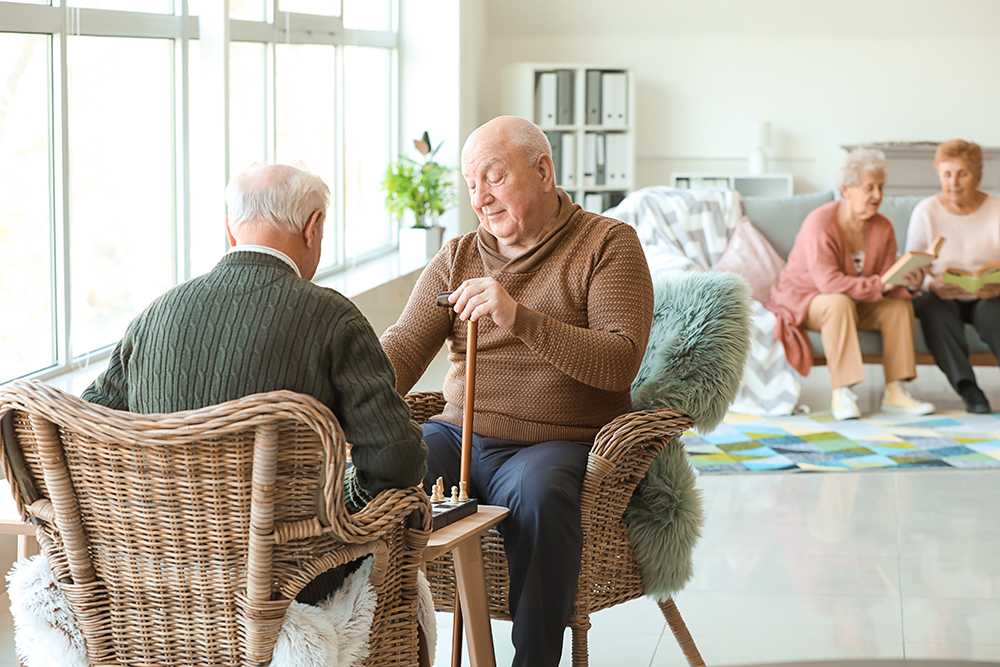
Realising that either yourself or a loved one needs more support is a moment that changes everything.
Whether you are seeking help for a parent or starting to think about your own needs, the question of what to do next can feel overwhelming. Where do you even begin? This is typically a stressful and confusing time for many families, but understanding the different types of support that are out there is the first step toward finding the right kind of care and comfort for the years ahead.
Nowadays care options for the elderly are broader and more flexible than ever before. They range from occasional assistance at home to residential care homes, offering individuals and families the freedom to choose what best fits their lifestyle, health and preferences.
This blog explores those choices clearly and calmly, helping you understand what’s available, what to consider, and how to make confident, informed decisions about care.
Staying independent: Home-based care options
Home care allows individuals to continue living life on their own terms while receiving just the right level of support to make each day easier and safer.
This type of care can take many forms. Some prefer a visiting carer who comes at set times to help with daily tasks or personal care. Others may feel more secure with a live-in carer, offering continuous support and companionship. Practical adjustments or technology, such as home adaptations, can also make a big difference to comfort and confidence.
The appeal of home care lies in its familiarity and sense of control. Successful home care starts with an honest assessment of current needs, a careful selection of reputable providers and regular reviews to ensure everything continues to work well. When thoughtfully planned, home-based care offers both independence and reassurance.
Temporary care options
Not every form of support needs to be long-term. Sometimes, a little extra help for a short period can make all the difference. Temporary care provides flexible solutions that fit around changing needs, which provides support without taking away independence.
Temporary care options for the elderly can include day centres, respite care and visiting care which can bring structure and social contact into daily life, especially for those who still value their independence but benefit from occasional support. These services offer the chance to enjoy companionship and receive the support you need when you need it.
Temporary care also gives families and caregivers valuable peace of mind. It provides breathing space, helping them rest and recharge while knowing their loved one is well cared for. For many, this blend of independence, engagement and professional support creates the best of both worlds. It proves that care can be flexible and empowering, while meeting needs as they arise.
When more support is needed: Residential and nursing care
There comes a time when the level of help needed day-to-day becomes more than what can be managed safely at home. It’s never an easy decision, but understanding the available care options for the elderly can bring clarity and peace of mind. Knowing what’s available helps you make choices that feel right, not rushed.
Residential care homes provide support with daily living, such as meals, personal care, and companionship in a safe, comfortable and structured environment. This type of care is suitable for those that need ongoing assistance with personal care but do not necessarily need medical care.
Nursing homes, on the other hand, offer the same support but with the addition of qualified nurses on-site to assist those with more complex medical needs. This distinction is often what guides families when deciding the right level of care.
The decision to move into residential care often comes when health issues become harder to manage, or when safety in the home starts to become a serious concern. When comparing homes, it’s important to look beyond glossy brochures. Pay attention to the quality of care, staff-to-resident ratios, inspection ratings, and how the place feels.
When you visit the home you think you might like speak to the staff and other residents if possible and pay close attention to the atmosphere. If something feels off or not quite right, be sure to trust your instincts.
Specialist care homes
As care needs become more specific, it can be comforting to know there are care options for the elderly designed to meet different levels and types of support. Within residential and nursing care, some homes specialise in particular areas, ensuring that every resident receives the kind of care that truly fits their circumstances.
Specialist care homes focus on particular health or lifestyle needs. For example, convalescent care homes support recovery after illness or surgery, offering short-term care that helps people regain strength and confidence before returning home.
On the other hand, dementia care homes are thoughtfully structured to provide safety, familiarity, and understanding for those living with memory loss. When looking at dementia nursing homes, be sure to ask about the dementia categories and behaviours they specialise in. The best dementia care facilities will have specialist resources and layouts, such as looped pathways, memory prompts and multisensory rooms aimed at stimulating the memory and reducing anxiety.
Other types of specialisms include complex care, companionship, mental health care, and palliative or end-of-life care homes, which focus on increasing comfort, symptom management and providing compassionate support during the most challenging times.
While many of these specialist homes also offer more general care, their training, facilities, and approach are often tailored toward their specific focus. It’s always worth asking about staff expertise, specialist qualifications, and how the environment is adapted to support residents’ needs.
Retirement Properties
Retirement properties come in many different forms and include everything from individual apartments and retirement homes to entire villages and specialist communities. They can be either offered as rentals or purchased, depending on personal preference.
These properties often include a range of amenities, such as household maintenance, on-site wardens, guest suites, and other convenient services.
They’re designed for older adults who value their independence but want the comfort and security of living among a supportive, like-minded community.
How to find the best care option
Autumna makes it easy to shortlist the care options that will work best for you and your family. Start by heading over to the search bar on our website and selecting the type of care you need.
You will then see a list of providers in your area.
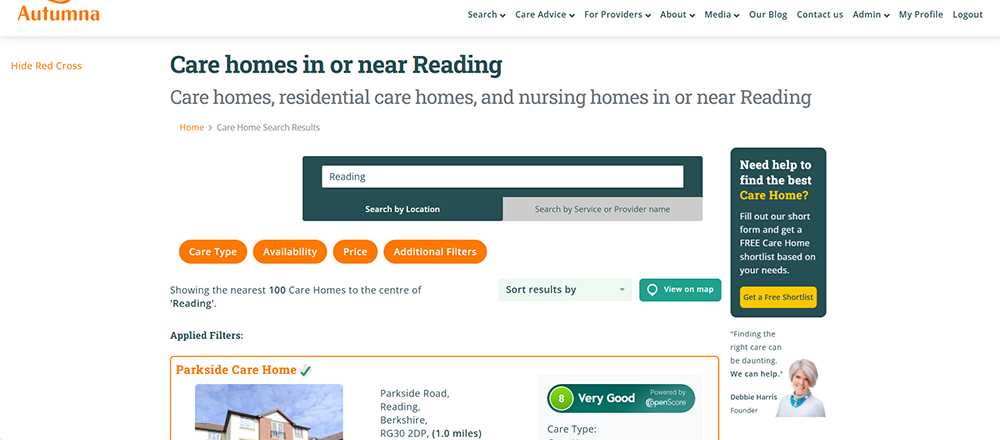
You can also narrow the results even further by selecting the types of specialisms and facilities you need under ‘Additional Filters.’
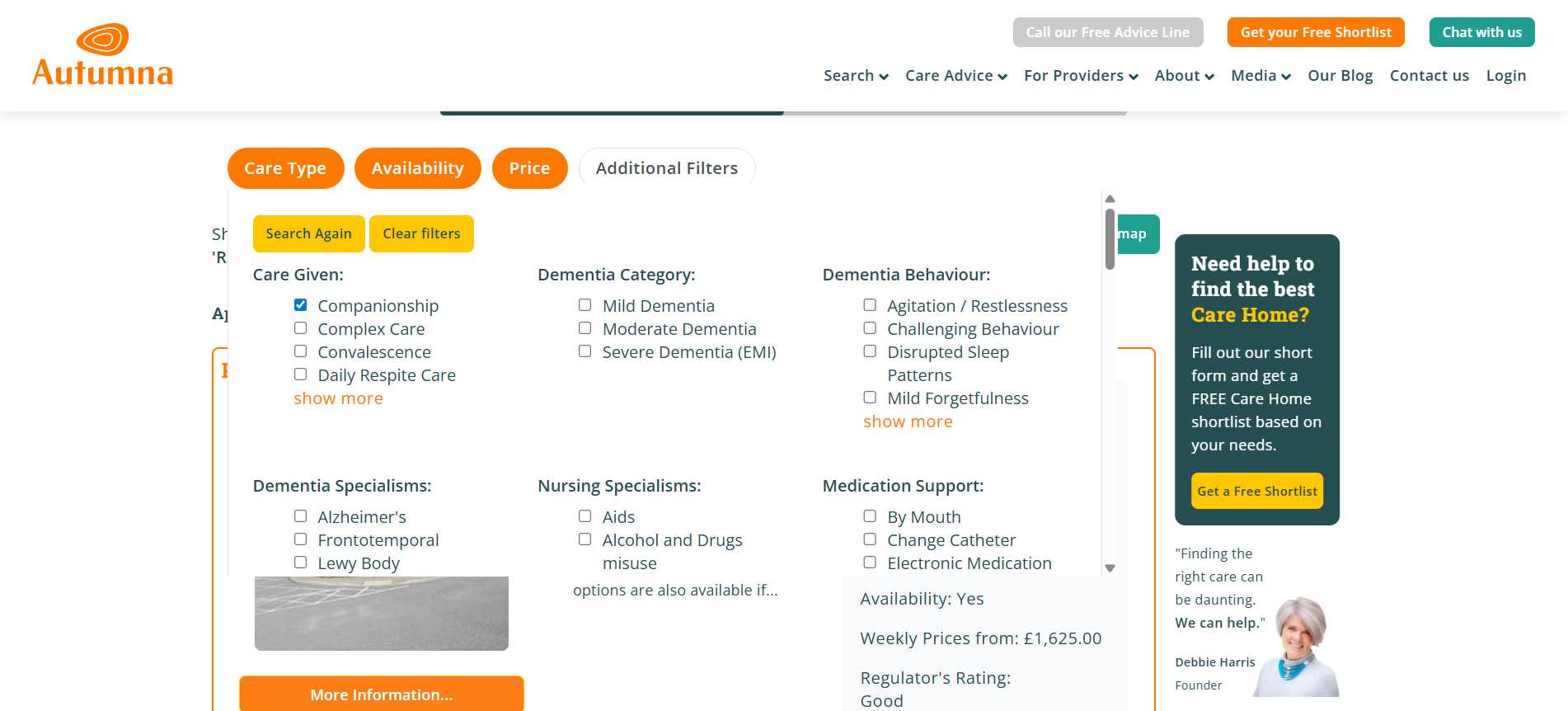
Our platform also lets you select by price, care type, and availability using the orange tabs above the search results.
Alternatively, you can use our simple shortlisting tool to get matched with an even more personalised list of providers tailored to your unique circumstances. Simply answer a list of questions and we'll do the rest!
Planning ahead: financial and emotional considerations
Preparing for the future is one of the most caring things you can do for yourself and your loved ones. When thinking about care options for the elderly, it’s important to look at both the financial and emotional sides of the journey.
Take time to explore what funding or support you may be eligible for. This could include support such as NHS Continuing Healthcare (CHC), NHS Funded Nursing Care or local authority support.
If you are self-funding your own care, there are a number of options available to help you pay for it.
Take time to explore what funding or support you may be eligible for, but remember this isn’t just about numbers. It’s also about creating peace of mind. Honest, open conversations with family can make these decisions feel less overwhelming and more empowering.
Planning ahead is not a one-time task. As life changes, your needs and priorities will too. Revisit your choices regularly to ensure they continue to reflect the life you want to live.
Need to talk through your options?
If you need to talk through your options, our friendly and knowledgeable team of advisors are available 7 days a week and can be contacted on 01892 335 330.
Other articles to read
From the blog
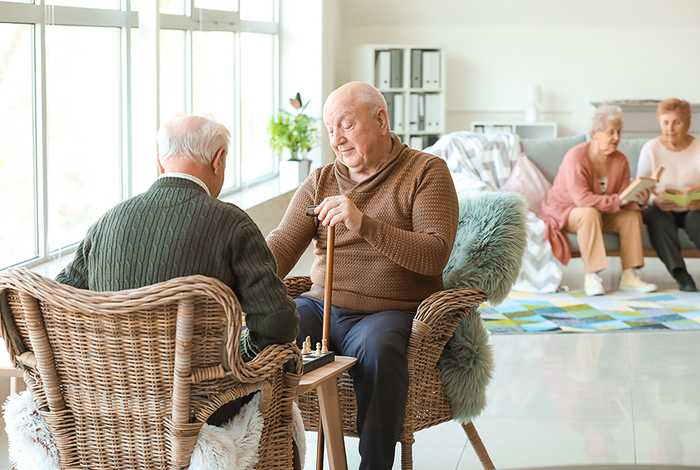
Older Persons Care Advice
Care options for the elderly: What is right for you?
October 17th, 2025
Discover care options for the elderly that fit your needs, from home support to residential care, helping you plan confidently for the years ahead.

Older Persons Care Advice
How to find a live in carer
October 15th, 2025
Discover how to find a live in carer who’s skilled, trustworthy and compatible, with practical tips on choosing the right support for your needs.
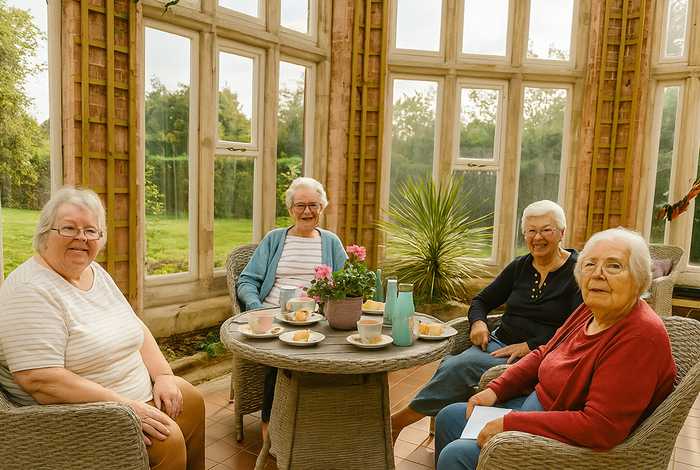
Older Persons Care Advice
Top day centres for the elderly in Kent
October 10th, 2025
Discover top day centres for the elderly in Kent offering companionship, activities, and flexible support to help loved ones stay active and fulfilled.
Frequently Asked Questions
Common care options for the elderly include home care, temporary care, residential and nursing homes, specialist facilities, and retirement properties.
Start by considering their level of independence, health needs, and emotional wellbeing, then compare local providers and available support.
Depending on your situation, you may qualify for local authority funding, NHS support, or private financial plans to cover care costs.
Have open discussions with family, explore funding options, and review your care decisions regularly as needs and priorities change.






